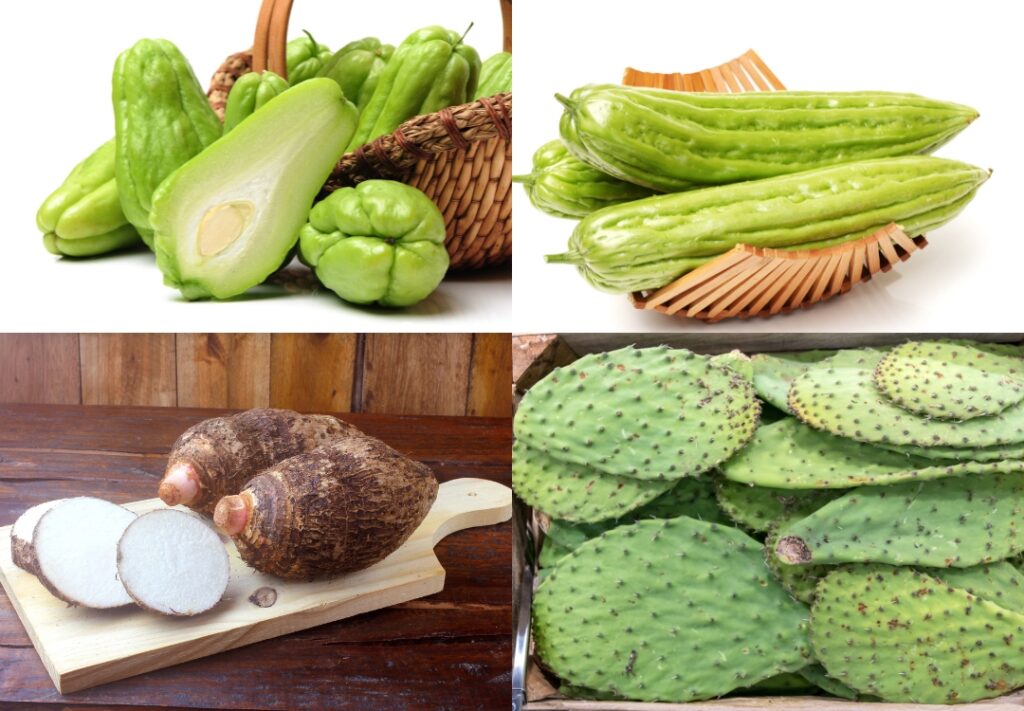The Most Exotic Vegetables in the World
Explore Vegetables Beyond Carrots and Potatoes

The Most Exotic Vegetables in the World
In the world of cooking and nutrition, ingredient diversity is essential to maintaining a balanced and interesting diet.
While carrots and potatoes are common vegetables in our daily meals, there are many other exotic vegetables that can offer a variety of unique flavors, textures, and nutritional benefits.
This article will explore some of the most exotic vegetables in the world, highlighting their characteristics and how they can enrich the diets of vegetarians and vegans.
Exploring exotic vegetables not only adds new culinary dimensions to meals but can also contribute to more complete nutrition.
Many of these vegetables are rich in specific nutrients that may not be found in more common vegetables. Therefore, incorporating these foods into your diet can bring various health benefits.
Continue reading to discover the most exotic vegetables in the world, their nutritional benefits, and how you can include them in your daily meals.
Nutritional Benefits
Exotic vegetables often contain a wide range of essential nutrients. For example, many of these vegetables are rich in antioxidants, vitamins, minerals, and fibers that are vital for overall health.
Additionally, some exotic vegetables have unique properties that can help in disease prevention, strengthening the immune system, and improving digestion. Below, we highlight the nutritional benefits of some specific exotic vegetables:
Jackfruit: Rich in vitamin C, fiber, and antioxidants, jackfruit is excellent for immune and digestive health.
Chayote: Low in calories but rich in vitamin C and folic acid, chayote is great for cardiovascular health and during pregnancy.
Nopal (Cactus): High in fiber and antioxidants, nopal helps regulate blood sugar levels and reduce cholesterol.
These examples show how exotic vegetables can be a valuable addition to the diets of vegetarians and vegans, providing a variety of nutrients that may not be as easily obtained from other sources.
Popular Exotic Vegetables
Here is a detailed list of some of the most exotic vegetables, including descriptions and nutritional information:
Jackfruit:
Description: Large tropical fruit with sweet yellow pulp.
Nutritional Information: Rich in vitamin C, potassium, and fiber.
Benefits: Strengthens the immune system, improves digestion, and can replace meat in vegan dishes due to its texture.
Chayote:
Description: Green pear-shaped vegetable with a mild flavor.
Nutritional Information: Contains vitamin C, folic acid, and potassium.
Benefits: Low in calories, good for cardiovascular health and pregnant women.
Nopal (Cactus):
Description: Edible cactus pads, used in salads and Mexican dishes.
Nutritional Information: High in fiber, antioxidants, and vitamin C.
Benefits: Helps regulate blood sugar levels, reduces cholesterol, and is good for digestion.
Bitter Melon:
Description: Green fruit with a rough surface and bitter taste.
Nutritional Information: Rich in vitamin C, vitamin A, and antioxidants.
Benefits: Helps control blood sugar levels and improves skin health.
Taro:
Description: Edible root vegetable used in various Asian cuisines.
Nutritional Information: Source of complex carbohydrates, fiber, vitamin E, and potassium.
Benefits: Promotes digestive health and provides sustained energy.
How to Incorporate Them into Your Diet
Incorporating exotic vegetables into your diet can be challenging, but with some practical tips, it can be easier and more fun:
Creative Recipes: Look for recipes that include these vegetables as main ingredients. For example, jackfruit can be used as a meat substitute in tacos and sandwiches.
Explore New Cuisines: Explore cuisines from different cultures that regularly use these vegetables, such as Mexican cuisine with nopal or Asian cuisine with taro.
Simple Preparation: Many of these vegetables can be prepared in simple ways, such as roasted, grilled, or boiled, preserving their nutrients and flavors.
Where to Find Them
Finding exotic vegetables can be easier than you think:
Local Markets and Fairs: Many local markets and fairs offer a variety of exotic vegetables, especially in urban areas.
Natural Products Stores: Stores specializing in natural and organic products often have a selection of exotic vegetables.
Online Shopping: There are several online stores that deliver exotic vegetables directly to your home, making it easier to access these ingredients.
Conclusion:
Exploring exotic vegetables can enrich your diet in various ways, providing new flavors and nutrients.
Adding these vegetables to your meals not only makes your diet more varied and interesting but can also offer significant health benefits.
Don’t hesitate to experiment and incorporate these ingredients into your eating routine.
Continue to explore the flavors and benefits of exotic vegetables and make the most of the diversity they can bring to your diet!
Frequently Asked Questions:
Proceed to the next page to see the most relevant questions on this topic. Many questions may answer your doubts.
